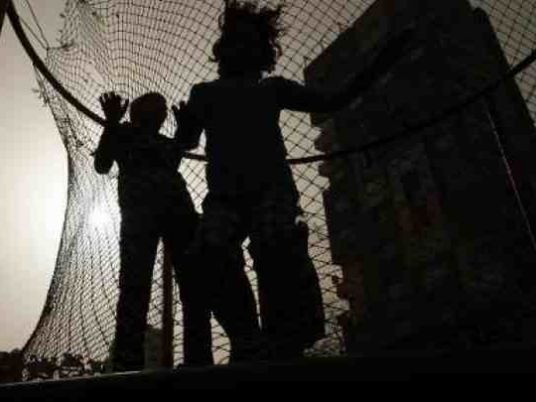
Eight-year-old Rahma was on her way home from school when she was raped — another victim of a surge in child abuse that has been overshadowed by turmoil in Egypt.
Two months on, she is still receiving psychotherapy and dreads going anywhere near the spot where the assault took place, close to the family farm in the Nile Delta.
In the shadow of deadly political violence ever since Egypt's 2011 revolution, experts say the authorities have given a low priority to the plight of children and complain of a lack of legislation.
Primary school pupil Rahma was assaulted in Kafr al-Sheikh province, 150 kilometres (95 miles) north of Cairo.
Her sister Amira says that she "is no longer a virgin. The assault has ruined her future and caused severe internal injuries.
"The hardest part for Rahma is overcoming the trauma," Amira told AFP.
Experts say physical and sexual violence against children in Egypt has surged in 2014.
More than 1,000 such assaults were registered between January and October, while 660 were recorded on average during the preceding three years, according to the National Council for Childhood and Motherhood (NCCM).
The cases included 131 rapes, 118 murders and 263 instances of torture.
"They get killed, tortured and raped in schools, orphanages, on the streets and even at home where they are supposed to be safe and protected," said Hany Helal, secretary general of the Egyptian Coalition for Children's Rights non-governmental organisation.
'Violence breeds violence'
Four years of political upheaval have scarred Egyptian society, with the impact also felt by the country's 17 million children, experts say.
"Violence breeds violence," said Azza Karim, a prominent sociologist.
"Egyptian society has experienced violence from the authorities, and this has its effect on all individuals."
Hundreds of demonstrators were killed during the 18-day uprising that toppled Egypt's veteran leader Hosni Mubarak in early 2011.
Political violence surged after his successor, Islamist president Mohamed Morsi, was ousted by then army chief and now President Abdel Fattah al-Sisi in July 2013.
A brutal government crackdown on Morsi's supporters has since left at least 1,400 people dead, thousands behind bars and dozens sentenced to death after speedy mass trials.
"Children are the weakest link in the chain… Adults unleash all their stress and feelings of oppression on them," Karim said.
Helal said: "Children's rights are being eroded because the government is so focused on political issues."
Assaults unreported
In October, the NCCM documented 300 cases of assault on children, including 27 boys and girls raped and 23 murdered, 13 of them by parents.
Schools topped the list of places of violence against children, including two deaths from sheer negligence caused by faulty equipment.
Several cases of physical and sexual assault on children were also reported in orphanages.
In August, the director of a Cairo orphanage was arrested after a video showing him beating children sparked outrage on social media.
The footage showed the man hitting the children with a stick and kicking them as they ran away, screaming in pain.
He was sentenced to three years in jail.
"A lot of cases of assault against children are never recorded because parents don't report them to authorities so as to preserve their image in a conservative society," said Helal.
"It's the lack of deterrent measures and the low priority given to children's issues" that have led to the rise in violence, according to Ahmed Hanafy, a psychotherapist with NCCM.
In a hospital in Damanhour, also north of the capital, the father of Mohammad consoled the eight-year-old at his bedside weeks after a violent sex attack.
Three youths tried to rape him before sexually assaulting him with an electric air pump, and his father says the only action taken since was when the governor paid a visit to his family.
A surge in kidnappings of children has put even more pressure on parents.
So far this year, 211 cases of kidnappings have been reported, with experts saying most are carried out by body organ traffickers.
"I'm very nervous. I don't let my children leave the house on their own, and I only relax when they're home," said father-of-three Mohammed Shalabi.
